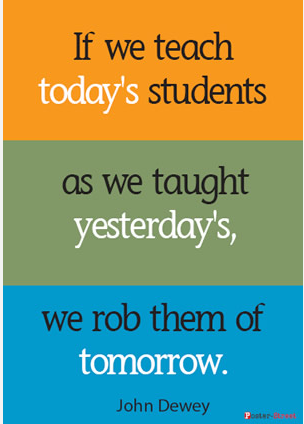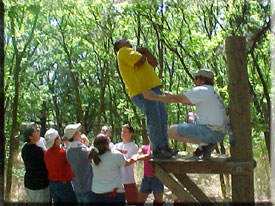 It’s funny the things that make us uncomfortable.
It’s funny the things that make us uncomfortable.
Not, like, in general. It’s not funny that snakes make me uncomfortable, or anyone messing with someone else’s eyeballs. Hair anywhere other than someone’s head. Dogs in the backs of moving pickup trucks. Those things should make anyone uncomfortable.
But it’s weird what can make us uncomfortable in our classrooms. One of them happened to me today.
It’s been a wild start. I wrote previously about trying to “hit the ground running,” which we did. Friday was all photos and orientations and policy manuals. Monday was a shortened schedule so kids could view the eclipse (yes, we used funny glasses). Tuesday was a “late start day” for meetings and then “Bonus Hour” in the afternoon and a special “close reading” activity and boy-howdy was I relieved when I realized we’d finally have THREE DAYS IN A ROW on the same schedule to finish out this week!
 In the midst of the chaos, we’ve introduced “World History” and what it means to add “AP” to the beginning. I’ve crammed in a few lectures, some jigsaw reading, a pretty big discussion about foundational themes – all while trying to get to know my kids enough to be effective in a new subject in a new place in a new reality stream.
In the midst of the chaos, we’ve introduced “World History” and what it means to add “AP” to the beginning. I’ve crammed in a few lectures, some jigsaw reading, a pretty big discussion about foundational themes – all while trying to get to know my kids enough to be effective in a new subject in a new place in a new reality stream.
Yesterday, I introduced an assignment I knew might take them a while. See, at some point, if you’re going to learn history, you have to start learning some history.
I’ll let that sink in.
I love creative teaching strategies and movement and interaction, and yes, I let one class talk me into showing “The Mesopotamians” music video after they’d been particularly productive. But eventually one of two things has to happen if kids are going to learn world history. Either I’m going to need to tell them stuff they need to know about world history – probably with visuals projected on a big screen in some way – or they’re going to need to read stuff about world history – probably from a book or article I’ve provided.
It’s that latter option which led to the weird, uncomfortable thing.
See, we busted out our textbooks for the first time yesterday – but late in the hour, when they barely had time to admire the large, consistent subheadings and svelte incorporation of maps and graphs. Today, I gave them most of the hour to read through the chapter and figure out what parts seem important before beginning this nifty, artsy-fartsy assignment I chose mostly because I think it’s pedagogically sound at this point with these kids, but partly because I have a huge classroom with very bare walls and I think the results will look both academically impressive and decorative.
Judge me, baby – I will not apologize. *throws arms open and head back, waiting*
So after some introductory things and a recap of goals and expectations for the assignment, I sat down and… let them work. I had to start figuring out the online grade book and enter some assignments from earlier in the week. I’d also planned on looking over next week’s content when I realized…
It was silent in my room. Eerie creepy quiet, in the wrongest sort of way.
Thank god I’m a weathered veteran, or I might have bolted right then. Instead, I forced myself to maintain a detached, pseudo-disinterested facade as I casually surveyed the situation.
 My ears eventually picked up the subtle scribbling of little mechanical pencils, and the periodic turning of pages. After what must have been seventeen or eighteen hours, a young lady leaned over to her tablemate and pointed to something in the text, whispering an apparent inquiry. Her cohort considered whatever she’d said, then nodded and gave a brief response which seemed to satisfy her. They both then continued doing this… this… horrifying “old way” schoolness.
My ears eventually picked up the subtle scribbling of little mechanical pencils, and the periodic turning of pages. After what must have been seventeen or eighteen hours, a young lady leaned over to her tablemate and pointed to something in the text, whispering an apparent inquiry. Her cohort considered whatever she’d said, then nodded and gave a brief response which seemed to satisfy her. They both then continued doing this… this… horrifying “old way” schoolness.
I considered clarifying that it was OK for them to work together, including actual speech if necessary, but I knew they already knew that. And they were collaborating, at least here and there. So instead I took a casual stroll around the room, answering a few questions of the sort apparently important enough to ask when I pass into their “inquiry zone,” but which hadn’t merited a trip all the way to my desk or the labor of raising an entire hand.
It seemed they were all on task. Some were more productive than others, of course, but they were by and large playing school. So I did something crazy.
I sat down and entered some grades, then started reading up on the Classical Period of China in Chapter Three.
And that was perfectly OK. Productive, even.
The weird part is that for several minutes, this made me feel guilty. I was afraid someone might walk by and see what was happening and judge me – a fear having nothing to do with my very supportive and sensible co-workers and everything to do with reading too many education books and blogs.
 If you’ve taught for any length of time, you’ve endured endless PD days, videos, handouts, faculty presentations, and perhaps even a horrible skit or two, built around three basic assumptions: (a) all teachers used to suck in every possible way, providing endless “before” examples, (b) most current teachers have no idea how to work with young people and probably don’t even like them very much, usually because of our cultural insensitivity, and (c) if we don’t embrace {insert trendy strategy here}, we’ll continue to suck and most likely destroy the future.
If you’ve taught for any length of time, you’ve endured endless PD days, videos, handouts, faculty presentations, and perhaps even a horrible skit or two, built around three basic assumptions: (a) all teachers used to suck in every possible way, providing endless “before” examples, (b) most current teachers have no idea how to work with young people and probably don’t even like them very much, usually because of our cultural insensitivity, and (c) if we don’t embrace {insert trendy strategy here}, we’ll continue to suck and most likely destroy the future.
It’s much more pronounced on social media. The blogs, the chats, the #irritweeting platitudes. Somehow, the worst offenders seem to always have 28.6K followers and a new book you should buy.
“Classrooms don’t have to be quiet all of the time. If I come to your room and it’s loud, I won’t scold you – I’ll congratulate you!”
“We need to be the guide on the side, not the sage on the stage!”
“Whoever’s doing all the work is doing all the learning. If you exert the least bit of effort in preparing or implementing a lesson, you’re stuck in the Dark Ages of mimeograph machines and overhead projectors!”
Ironically, there are some pretty hard and fast doctrines generally accompanying these “revolutionary” ideas. Kids should be in charge of everything related to their education – content, methodology, evaluation, location, etc. – from about age four through their first Master’s Degree. Teachers who lecture or use Powerpoint in any context or for any purpose are the Devil’s Pedagogues. “Relationships” are more important than content or structure or pedagogy or pedigree, reading or writing or math – after all, they don’t care how much you know until you stop lighting stuff on fire in buckets and embrace starfish as they learn grit by celebrating failure, thus leaving two sets of footprints in the sand.
Honestly, it may be rooted in good intentions, but it gets a bit judgey. Most religions do when they stray from their central purpose.
 So I’d like to assure all of the baby teachers out there, and remind some of the veterans, that all instructional and classroom management advice – the pedagogy, the brain research, the anecdotes, the activities – are (or should be) about giving you ideas. Options. Tools. Challenging you, or inspiring you. Maybe shaking you up or forcing you to question how you do things from time to time.
So I’d like to assure all of the baby teachers out there, and remind some of the veterans, that all instructional and classroom management advice – the pedagogy, the brain research, the anecdotes, the activities – are (or should be) about giving you ideas. Options. Tools. Challenging you, or inspiring you. Maybe shaking you up or forcing you to question how you do things from time to time.
They’re not divine revelations. Flipped classrooms are a cool idea that work for many teachers in many circumstances; they’re not carved into stone tablets that Moses posted online for the Israelites to view as many times as necessary at home and ask questions about during the assembling of the people. Close reading strategies are good for many kids in many situations, and most of us could stand to be a bit more intentional about stuff like this, but they’re not silver bullets, no matter what that sample class from New Jersey did in that video. Even Socratic Circles or Inquiry-Based Anything sometimes work and sometimes don’t – that’s what keeps teaching interesting.
If you’re boring the crap out of your kids with droning lectures, then stop. If you’re ossifying their little brains with book work and worksheets, then you really do suck – you’re the guy in those horrible anecdotes they use to justify torturing the rest of us. And if you don’t actually like your kids… dude – go sell shoes or something. Less stress, more money.
 Question your methods, absolutely. Challenge your perceived results. Be transparent with your co-workers in considering ways to be more effective. Don’t be insecure and stuck in the mythical, dark “ancient ways.”
Question your methods, absolutely. Challenge your perceived results. Be transparent with your co-workers in considering ways to be more effective. Don’t be insecure and stuck in the mythical, dark “ancient ways.”
But if you’re doing your best to figure out what works for you and your kids, and that involves a lecture or two, then you go, girl. If you require kids to occasionally sit down and crunch some content, do so without shame or apologies. You may even sporadically find use in multiple choice quizzes or a *gasp* movie or two.
“Old school” is not a synonym for “failure.” Neither is “direct instruction,” “hard deadlines,” or “quantitative assessment.” Progress is doing what works for your kids in your classroom in your reality. If you’re doing that, you don’t owe anyone an apology and have no need to make excuses. Buy that teacher book because it motivates you; not because it shames you. You’re already awesome, and many of you are working miracles in a fallen, stupid world. For totes realsies. Thank God you’re doing what you do, every day, so damn well.
Even if your classroom is, you know… occasionally a bit too quiet.

RELATED POST: Teach Like You
RELATED POST: Why Kids Learn
RELATED POST: What Misfits Wish Their Teachers Knew (Guest Blogger – Courtney’s Voice)

 I’m always surprised what people ask about at conferences or in small group settings. That’s not a criticism, just a reminder that sometimes we don’t know as much as we think we do about what people want, need, or might take an interest in.
I’m always surprised what people ask about at conferences or in small group settings. That’s not a criticism, just a reminder that sometimes we don’t know as much as we think we do about what people want, need, or might take an interest in. 
 * You will be required to visit The Class Website regularly in order to copy the anticipated schedule for the upcoming week. Your agendas will be checked each Monday morning. The schedule will be posted no later than lunchtime Friday of the previous week so that students without convenient internet access at home can use the school library or other school computer during lunch or after school in order to fulfill this requirement.
* You will be required to visit The Class Website regularly in order to copy the anticipated schedule for the upcoming week. Your agendas will be checked each Monday morning. The schedule will be posted no later than lunchtime Friday of the previous week so that students without convenient internet access at home can use the school library or other school computer during lunch or after school in order to fulfill this requirement.  Why All The Reading?
Why All The Reading? Miscellaneous Stuff You Should Know
Miscellaneous Stuff You Should Know